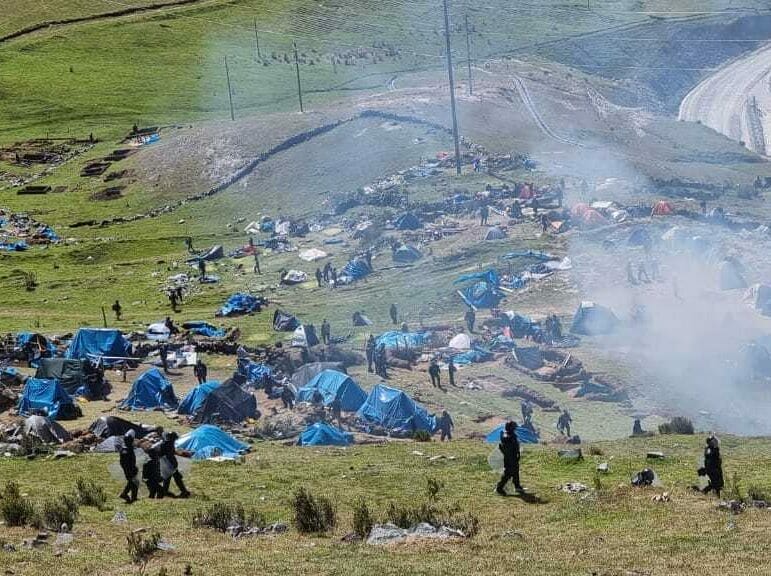
They were more than three thousand - José Arcadio Segundo had to assure, recalling the slaughter of the peons in Macondo. In that episode, the army had repressed the strike with machine guns to suppress the protests of the banana company workers. As often happens, the fantasy of literature is only a reflection of reality.
Today, after thirteen days of protest by peasants against the Las Bambas mining company, the Peruvian government has declared a state of emergency in the city of Fuerabamba. The protests began on April 14, when the community members occupied the land concessioned to the mining company, demanding the fulfillment of the agreements stipulated with the company.
After declaring a state of emergency, the government deployed 2,500 police and army troops, who went to the mining company's land to evict the protesters. Since this morning, the repression has turned into a conflict. Witnesses and videos that have begun to circulate on social networks confirm that the military have resorted to the use of violence.
The police are still firing buckshot and are also provoking the comrades with derogatory words - can be heard in a video published by the Observatorio de Conflictos Mineros del Perú (Peruvian Mining Conflict Observatory). We are clearly outside the company, but they continue to repress us.
Likewise, some witnesses have reported that the police are arbitrarily detaining women and children.
As in Macondo, the armed forces seem to lack consideration when it comes to dealing with the protests and their own people. In fact, the use of violence and human rights violations are nothing new in the repression of demonstrations, especially in mining areas. The issue is even more controversial if one considers the laws in force in Peru: the armed forces have impunity when exercising their functions, even in cases of death or serious injury.
Today's conflict adds to the multitude of conflicts that have developed in the Las Bambas corridor, one of the most conflictive areas in the southern Andean region. Today's case confirms once again the need to establish a constant dialogue and to take measures to address the problem of extractivism and the recurring conflicts it generates. In the absence of measures, such episodes of violence will continue to threaten the wellbeing of the environment and its defenders.
There were more than three thousand - José Arcadio Segundo had to keep muttering in the solitude of his workshop. So far, in Fuerabamba, the balance is twenty wounded and ten missing, among them a girl. One of them has reported a serious eye injury. The only hope is that the Peruvian government acts to resolve the conflicts, operating to safeguard the welfare of its people, preventing impunity and oblivion from transforming today's repression into yet another example of violence against the communities.
Photo: José Víctor Salcedo on Twitter



